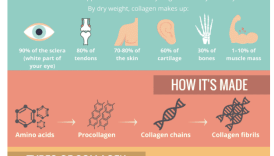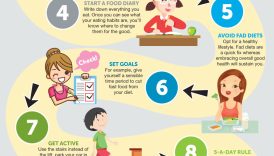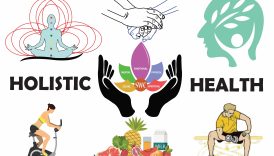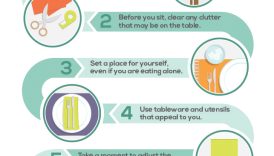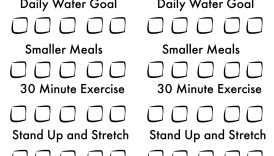From Exercise to Nutrition: Building a Foundation for Health

Importance of Physical Exercise
Benefits of Regular Exercise
Regular exercise plays a crucial role in maintaining a healthy lifestyle. It is not just for building muscle or losing weight; it profoundly impacts overall well-being. For instance, after starting a fitness routine, many individuals notice an increase in their energy levels, making daily tasks feel less daunting. Here are some key benefits of incorporating regular exercise into your routine:
- From Exercise to Nutrition: Building a Foundation for Health
- Importance of Physical Exercise
- Benefits of Regular Exercise
- Types of Physical Activities
- Understanding Nutrition
- Macronutrients and Micronutrients
- Importance of a Balanced Diet
- Creating a Healthy Meal Plan
- Meal Prepping Tips
- Snack Ideas for Balanced Nutrition
- Hydration and Its Role in Health
- Benefits of Staying Hydrated
- Tips for Proper Hydration
- Supplements to Support Health
- Vitamins and Minerals
- Protein Powders and Other Supplements
- Boosts Mood: Physical activity stimulates the release of endorphins, often known as “feel-good” hormones. This can help reduce feelings of anxiety and depression.
- Improves Heart Health: Engaging in consistent exercise strengthens the heart, improves circulation, and lowers the risk of cardiovascular diseases.
- Enhances Strength and Flexibility: Various workouts like yoga and strength training can enhance muscle strength and improve flexibility, reducing the risk of injuries.
- Promotes Better Sleep: Regular physical activity can lead to deeper, more restful sleep. Individuals often find that a good workout earlier in the day helps them unwind at night.
- Supports Weight Management: Combining exercise with a balanced diet is vital in controlling weight effectively.
Types of Physical Activities
Diversity is key when it comes to physical activities. Finding something enjoyable ensures that individuals stick to their exercise routines. Here are some popular types of physical activities that appeal to different interests and fitness levels:
- Aerobic Activities: Running, cycling, swimming, and dance are fantastic for cardiovascular health.
- Strength Training: Lifting weights, bodyweight exercises, and resistance bands help build muscle mass.
- Flexibility and Balance Work: Practices such as yoga and Pilates focus on flexibility and stability, which are essential for overall injury prevention.
- Recreational Sports: Engaging in sports like basketball, soccer, or tennis can be a fun way to stay active.
- Outdoor Activities: Hiking, kayaking, or simply walking in a park not only combines exercise with nature but also promotes mental well-being.
Emphasizing a mix of these activities can lead to a well-rounded fitness regimen. By exploring different types of exercises, individuals can discover what resonates most with them, making it easier to incorporate fitness into their daily lives. After all, the goal is to stay active while enjoying the journey!
Understanding Nutrition
Macronutrients and Micronutrients
Nutrition is a fundamental piece of the health puzzle, essential for fueling our bodies and supporting all functions, from energy production to recovery after exercise. At the heart of good nutrition are macronutrients and micronutrients, each playing unique roles in our well-being. Macronutrients are the nutrients our bodies need in larger amounts:
- Carbohydrates: Often the body’s primary energy source, they are found in foods like grains, fruits, and vegetables.
- Proteins: Crucial for muscle repair and growth, proteins can be sourced from meats, legumes, and dairy products.
- Fats: Healthy fats, such as those from avocados and nuts, support cell function and hormone production.
On the flip side, micronutrients are needed in smaller quantities but are just as vital:
- Vitamins: Essential for immune function and energy production, Vitamins A, C, D, and B-complex are common examples.
- Minerals: Elements like calcium, potassium, and iron support various bodily functions, including bone health and fluid balance.
Understanding the balance between these nutrients is key to establishing a healthy diet.
Importance of a Balanced Diet
Eating a balanced diet means incorporating a variety of foods that provide essential nutrients in appropriate amounts. For example, a typical day for someone aiming for balance might include:
- Breakfast: Oatmeal topped with berries (carbohydrates) and a sprinkle of nuts (healthy fats).
- Lunch: Grilled chicken salad with mixed greens (protein and vitamins) dressed with olive oil (healthy fat).
- Snack: A yogurt cup (protein and calcium) with a side of fruit (natural carbohydrates).
The benefits of maintaining a balanced diet are profound:
- Supports Overall Health: A variety of nutrients helps the body function correctly and reduces the risk of chronic diseases.
- Boosts Energy Levels: Proper nutrition can lead to sustained energy throughout the day, making daily activities easier.
- Enhances Mental Well-being: Certain foods can have a positive impact on mood and cognitive function, further emphasizing the mind-body connection.
Incorporating a balanced diet into daily life doesn’t have to be daunting. Individuals can start small, experimenting with new recipes or trying to include a rainbow of foods on their plates. By understanding and prioritizing nutrition, one can take significant steps toward a healthier life!
Creating a Healthy Meal Plan
Meal Prepping Tips
Creating a healthy meal plan can feel like a daunting task, but with a little preparation, it can turn into a highly rewarding routine. Meal prepping not only saves time during busy weekdays but it also helps maintain nutritional goals without sacrificing flavor or variety. Here are some practical meal prepping tips:
- Plan Ahead: Spend a few minutes each week sketching out your meals. Consider your schedule to determine which days need quick meals and which can be more elaborate.
- Batch Cooking: Cooking larger portions of grains, proteins, or vegetables at once can save time. For example, cooking two cups of quinoa can provide a base for multiple meals throughout the week.
- Use Containers: Invest in plenty of reusable containers to store meals. Mason jars are great for salads, whereas glass containers work well for main dishes. Having everything pre-portioned makes grabbing meals on the go easy.
- Keep It Simple: Focus on a few staple recipes that work well for your taste buds and can be easily rotated. A stir-fry or casserole can yield several servings and can redefine leftovers as gourmet meals.
- Incorporate Variety: Change up flavors with different seasonings and sauces each week. This keeps meals exciting and helps prevent boredom!
Snack Ideas for Balanced Nutrition
Snacks play an important role in maintaining energy levels between meals, especially when they are built on sound nutritional principles. Here are some healthy snack ideas that allow for balance while satisfying cravings:
- Greek Yogurt with Honey and Berries: Protein-rich with natural sweetness, this snack is both refreshing and sustaining.
- Veggies and Hummus: Sliced bell peppers, carrots, or cucumber with a side of hummus can provide fiber and healthy fats.
- Nuts and Seeds: Almonds, walnuts, or pumpkin seeds can offer healthy fats and protein, making them a perfect on-the-go choice.
- Whole Grain Crackers with Cheese: Pairing whole grain crackers with a slice of cheese can create a delicious balance of carbohydrates and protein.
- Peanut Butter and Banana: Spreading peanut butter on banana slices is an easy way to fuel up while enjoying delicious flavors.
By employing meal prepping techniques and choosing balanced snacks, individuals can effortlessly stay on track with their health goals. Not only does it simplify daily routines, it also fosters creativity in the kitchen, transforming healthy eating into a fun and enjoyable experience!
Hydration and Its Role in Health
Benefits of Staying Hydrated
Hydration is often overlooked in discussions about health and nutrition, yet it plays a pivotal role in maintaining overall well-being. Water is essential for virtually every bodily function, and staying properly hydrated can lead to numerous health benefits. For example, when Sarah, a busy professional, started paying attention to her hydration, she noticed a remarkable difference in her energy levels throughout the day. Here are some key benefits of keeping hydrated:
- Supports Physical Performance: Staying hydrated helps regulate body temperature and maintain optimal physical performance, whether at the gym or during strenuous activities.
- Enhances Brain Function: Proper hydration is crucial for cognitive functions such as concentration, problem-solving, and mood. Just a 2% drop in body fluid can lead to noticeable cognitive decline.
- Promotes Healthy Digestion: Water aids digestion by helping break down food and prevent constipation, ensuring nutrients are efficiently absorbed.
- Boosts Skin Health: Hydration plays a significant role in maintaining skin elasticity and moisture. A well-hydrated person often experiences fewer skin issues.
Tips for Proper Hydration
To reap the benefits of hydration, it’s essential to adopt good habits that encourage adequate fluid intake. Here are some actionable tips that can help:
- Carry a Water Bottle: Having a refillable water bottle within reach makes it easier to drink water throughout the day. Consider marking it with time goals to stay motivated.
- Set Reminders: If remembering to drink water is challenging, setting alarms or using apps can help you establish a consistent routine.
- Infuse Your Water: If plain water isn’t appealing, try adding slices of fruits, herbs, or cucumber to infuse flavor without added sugars.
- Snack on Water-Rich Foods: Incorporate foods like cucumbers, watermelon, oranges, and leafy greens, which have high water content and contribute to overall hydration.
- Monitor Your Urine: A practical way to gauge hydration levels is by checking the color of your urine. Light yellow typically indicates proper hydration, while darker shades can signal dehydration.
Balancing hydration throughout the day can be both simple and enjoyable. By understanding its significance and employing these tips, individuals can take proactive steps towards better hydration, ultimately benefiting their health and enhancing daily performance!
Supplements to Support Health
Vitamins and Minerals
In today’s fast-paced world, it’s often easy to overlook essential nutrients in our diets. While focusing on whole foods is crucial, certain vitamins and minerals can be beneficial to supplement daily nutrition. These key nutrients help fill potential gaps and support various bodily functions. For instance, when Jake, an avid runner, began taking a multivitamin, he noticed improved energy levels during his workouts. Here are some important vitamins and minerals to consider:
- Vitamin D: Vital for bone health and immune function, Vitamin D can be obtained from sunlight and fortified foods, but many people still fall short, especially in colder months.
- Calcium: Essential for strong bones and teeth, calcium can be found in dairy products, but for those with lactose intolerance, a supplement may be necessary.
- Iron: Critical for transporting oxygen in the blood, iron is particularly important for women and athletes. Foods like red meat and spinach are good sources, but a supplement might be needed in some cases.
- Magnesium: Involved in muscle function and energy production, magnesium deficiencies can lead to fatigue and cramps. Nuts, seeds, and whole grains are great sources, but a supplement might help boost levels.
Protein Powders and Other Supplements
In addition to vitamins and minerals, protein powders and other supplements can aid in reaching specific health goals and dietary needs. For example, Maria, a fitness enthusiast, incorporated protein powder into her post-workout routine and saw noticeable improvements in muscle recovery. Here’s a look at some popular supplements and their benefits:
- Whey Protein: This fast-digesting protein is ideal for post-workout recovery, providing essential amino acids that support muscle repair and growth.
- Plant-Based Protein: Ideal for vegans or those with dairy sensitivities, options like pea or brown rice protein provide similar benefits without animal products.
- Omega-3 Fatty Acids: These healthy fats, often derived from fish oil or flaxseed, can support heart and brain health, reducing inflammation in the body.
- Creatine: Popular among athletes and bodybuilders, creatine enhances performance during high-intensity exercise and can help build muscle mass.
Ultimately, while supplements can offer benefits, they should complement a balanced diet rather than replace it. A mindful approach to supplementation, tailored to individual needs, can lead to improved health and wellness. As with any health regimen, consulting a healthcare provider before introducing new supplements is always a wise decision!
